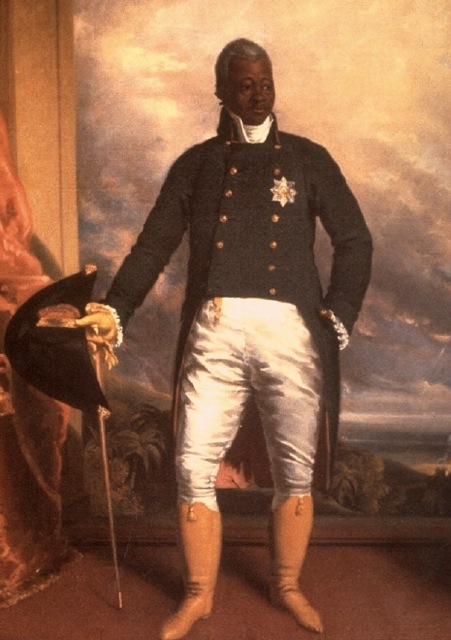Jan
24
El Reino de este Mundo
Posted by: | January 24, 2010 | Comments Off on El Reino de este Mundo
I would like to begin by saying that I am enjoying this book much more than the Leyendas which I think is due in part to the fact that El Reino de este Mundo is much more relatable, especially given the current situation in Haiti- very topical. I also enjoy historical context of the Haitian Revolution in that I feel as though I am learning quite a bit about the revolution that I previously was quite ignorant to; I knew the basic history, but after reading half of El Reino de este Mundo, I feel as though I have a better grasp on the socio-historical/political context and almost an “insider’s view” of Haiti’s history.
I would also like to touch on the topic of “realismo magico” vs “realismo maravilloso”. I did a very little bit of research on the book to grasp a better understanding of what was going on and in doing so found some sort of article declaring that El Reino is a book of “maravilloso” vs “magico”. I’m really not sure what the difference is, but the author seemed quite adamant in saying that they are different things. Maybe maravilloso is more believable and less fantasy than magico? I don’t know.
That being said, because this is a course on magical realism, I am going to stick to the idea that Carpentier was writing a novel based on el magico. He was able to capture, what I view to be, the single most important event in Haiti’s history in determining the country’s present politics, culture, etc, and make it not only accessible, but thought-provoking, through the use of magical realism. He took a brutal revolution and while keeping the history quite factual (the use of Mackandal as a character for instance) and was able to allow the reader to experience the Haitian Revolution through the eyes of a slave through the use of African religion as the magical aspect. As a reader I was able to gain perspective on African culture and it’s major influences on Haiti. I think it truly ingenious on the part Carpentier to use African religion to create the magical world- it added quite a bit of depth and meaning to the text and kept an air of poetry. He took two oppressed cultures and people (the slaves of Africa and Haiti) and meshed them into one story, which parallels the history of Haiti.
Okay, that’s all for now, but I suppose there will be more to read next week!

